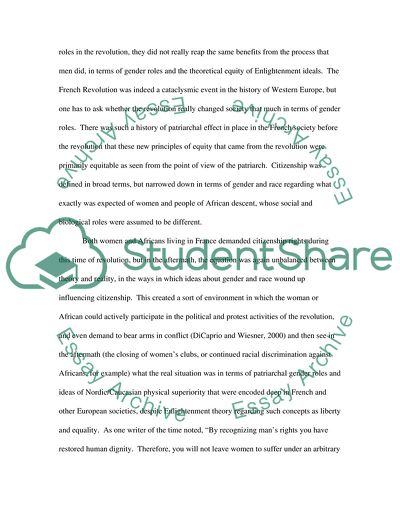Cite this document
(African Descents and Women in Revolutionary France Assignment, n.d.)
African Descents and Women in Revolutionary France Assignment. https://studentshare.org/history/1745958-why-according-rights-to-people-of-african-descent-and-women-was-such-a-contentious-issue-in-revolutionary-france
African Descents and Women in Revolutionary France Assignment. https://studentshare.org/history/1745958-why-according-rights-to-people-of-african-descent-and-women-was-such-a-contentious-issue-in-revolutionary-france
(African Descents and Women in Revolutionary France Assignment)
African Descents and Women in Revolutionary France Assignment. https://studentshare.org/history/1745958-why-according-rights-to-people-of-african-descent-and-women-was-such-a-contentious-issue-in-revolutionary-france.
African Descents and Women in Revolutionary France Assignment. https://studentshare.org/history/1745958-why-according-rights-to-people-of-african-descent-and-women-was-such-a-contentious-issue-in-revolutionary-france.
“African Descents and Women in Revolutionary France Assignment”. https://studentshare.org/history/1745958-why-according-rights-to-people-of-african-descent-and-women-was-such-a-contentious-issue-in-revolutionary-france.


